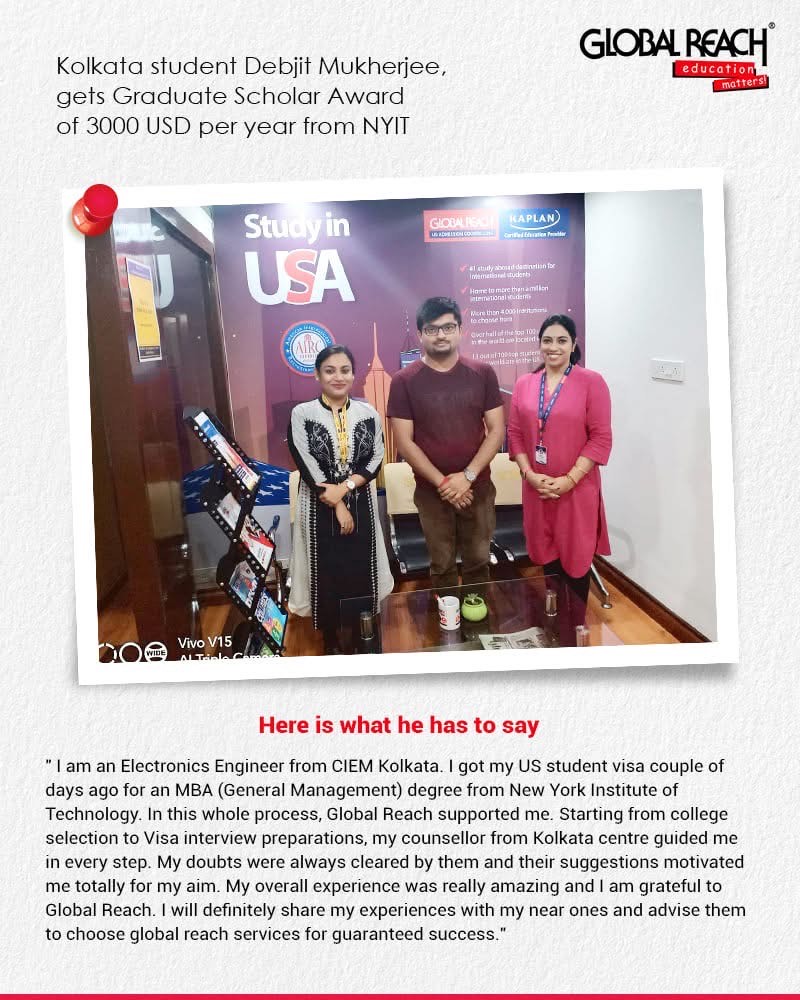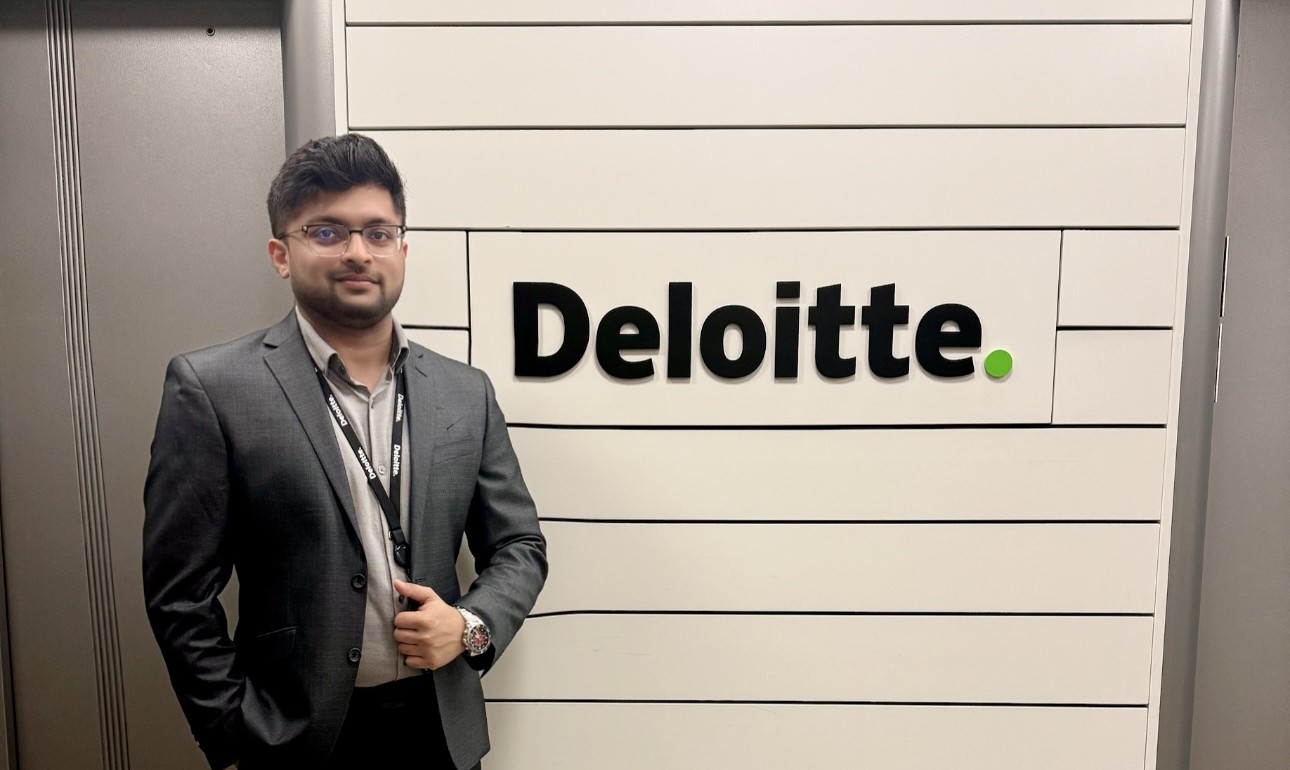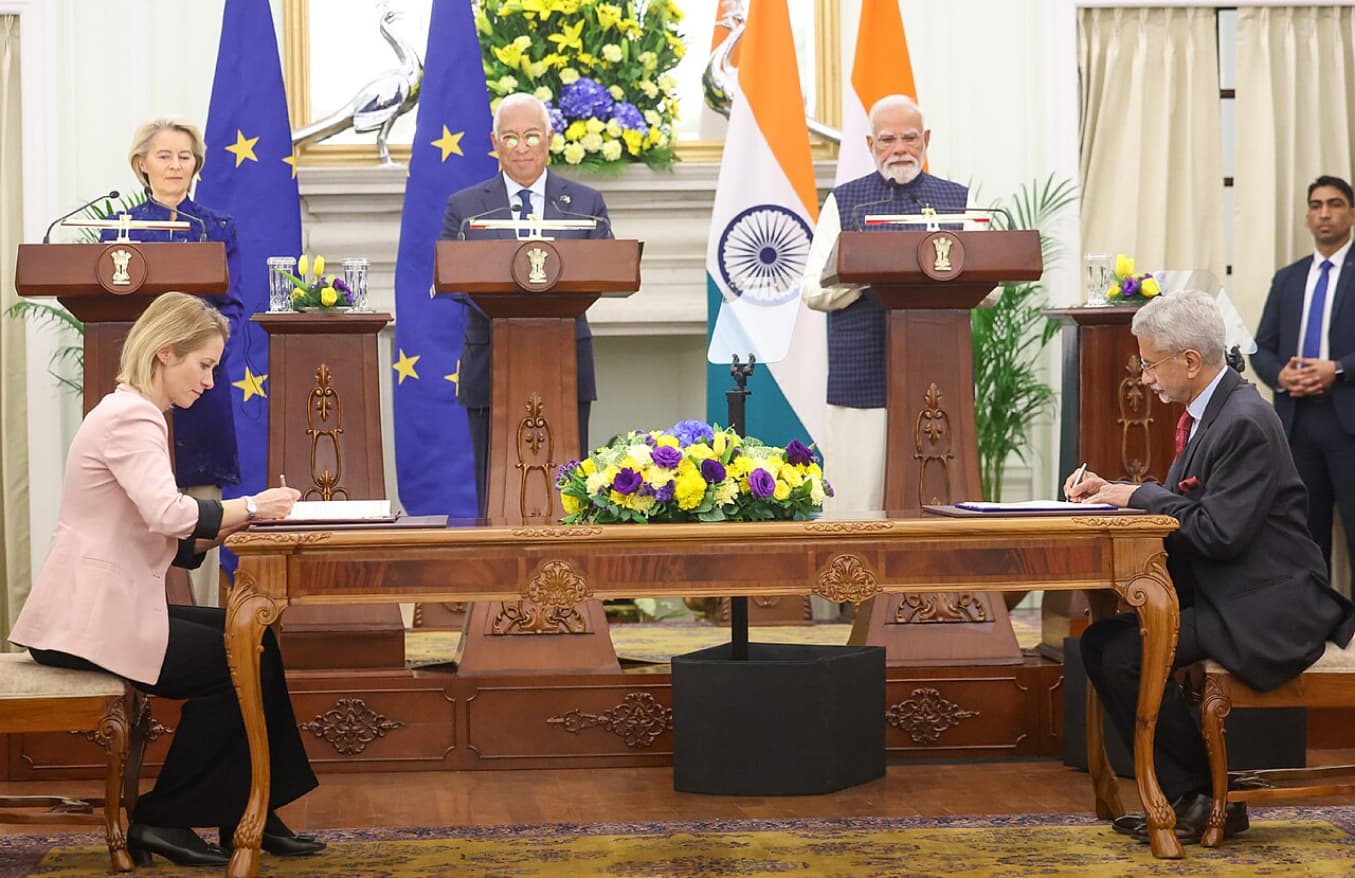In the bustling corridors of General Electric’s automation division, a young engineer named Debjit Mukherjee found himself captivated not just by the mechanical precision of SCADA systems, but by something far more intriguing: the untapped stories hidden within the data streams these systems generated. What began as curiosity about process optimization would eventually evolve into a distinguished career bridging the technical depths of engineering with the strategic heights of business transformation.
Today, as a Senior Consultant at Deloitte and an active Google Scholar, Debjit represents a new generation of digital architects who understand that true transformation lies not in technology alone, but in the precise alignment of data, strategy, and human insight. His journey from Electronics & Telecommunications Engineering through GE’s automation systems to Harvard’s executive programs illustrates how technical excellence can evolve into strategic leadership when guided by the right vision.
“At GE, I was deeply involved in automation and SCADA systems, working on process optimization and system integration,” Debjit reflects on his foundational years. “Over time, I realized that the data generated from these systems had untapped strategic value.” This realization would become the catalyst for a career transformation that has touched Fortune 500 companies and academic institutions alike.
THE TECHNICAL FOUNDATION: WHERE PRECISION MEETS POSSIBILITY
Debjit’s background in Electronics & Telecommunications Engineering provided more than just technical credentials; it shaped his fundamental approach to problem-solving in the digital age. The discipline taught him structured thinking, systems architecture, and the critical importance of real-time information flow—skills that would prove invaluable as businesses began their digital transformation journeys.
“Electronics & Telecom taught me structured problem-solving, systems thinking, and the importance of real-time information flow, all critical to digital transformation,” he explains. This technical foundation ensures that his consulting solutions are not merely strategic concepts but robust, technically sound implementations that can withstand the complexities of enterprise environments.
The transition from engineering execution to strategic consulting required more than technical expertise. Recognizing this gap, Debjit pursued an MBA in Business Analytics, a decision that would fundamentally reshape his career trajectory. This academic pursuit wasn’t just about acquiring credentials; it was about building the bridge between technical possibility and business value.
HARVARD AND BEYOND: BUILDING STRATEGIC PERSPECTIVE
The pursuit of advanced education at Harvard and the New York Institute of Technology reflected Debjit’s understanding that modern consulting requires both technical depth and strategic breadth. The MBA at NYIT provided business-oriented perspectives on analytics and decision-making, while Harvard’s Business Intelligence program offered insights into emerging trends and leadership in data transformation.
“These programs helped me understand both the ‘why’ and ‘how’ of data strategy, allowing me to influence executive decisions with technically precise and strategically aligned solutions,” Debjit notes. This dual perspective has become his signature approach—combining technical precision with strategic insight to deliver solutions that resonate at the executive level.
The Harvard experience, in particular, emphasized collaborative leadership and systems thinking, lessons that Debjit applies daily in his consulting practice. “One key lesson is the importance of collaborative leadership—the best results emerge when technical, business, and change management leaders align,” he reflects, highlighting how academic insights translate into practical consulting excellence.
THE DELOITTE ADVANTAGE: WHERE STRATEGY MEETS EXECUTION
At Deloitte, Debjit has found the perfect platform to apply his unique blend of technical expertise and strategic thinking. His consulting engagements typically begin with understanding client business goals and requirements, followed by comprehensive data discovery and assessment. The process involves tool selection, system integration, and dashboard development, but the true value lies in stakeholder alignment and ensuring adoption.
“My role spans mostly on the strategic reporting—like Tableau Dashboard/SAP BI Report construction and enhancements that influences executive decisions,” Debjit explains. This focus on executive influence demonstrates how his work transcends traditional IT implementations to become genuine business transformation initiatives.
His approach to consulting engagements reflects a deep understanding of organizational dynamics. He recognizes that technology success depends not just on technical implementation but on human adoption and strategic alignment. Every project becomes an opportunity to bridge the gap between technical possibility and business reality.
NAVIGATING THE COMPLEXITY: CHALLENGES AND SOLUTIONS
Through his extensive consulting experience, Debjit has identified the key challenges organizations face when integrating AI and analytics into their business processes. These include data silos and poor quality, lack of cross-functional alignment, legacy system integration issues, and misalignment between AI insights and business objectives.

His solution approach focuses on systematic problem-solving combined with stakeholder engagement. “I focus on translating complex analytics into digestible, visual insights using tools like Tableau and Power BI,” he explains. “I always align technical metrics with KPIs that business stakeholders care about—like user interface, customer experience, or time to market.”
This translation capability has proven crucial in driving adoption and ensuring that technical investments deliver measurable business value. His presentations combine data depth with strategic framing, ensuring that insights lead to actionable decisions rather than remaining as interesting but unused analyses.
THE ART OF TOOL SELECTION: MATCHING TECHNOLOGY TO PURPOSE
One of Debjit’s distinctive strengths lies in his ability to select the right tools for specific business contexts. His extensive work with SAP BO and Tableau has taught him that tool selection depends on multiple factors including audience needs, data source integration requirements, and performance specifications.
“The choice depends on audience: Tableau for interactive insights, SAP BO for operational reports,” he explains. “SAP BO works better with SAP ERP; Tableau is ideal for diverse, visual-rich data stories.” This nuanced understanding ensures that clients receive solutions optimized for their specific contexts rather than generic implementations.
His approach to system migrations demonstrates the same precision and attention to stakeholder needs. The structured methodology includes auditing and backing up current environments, pilot testing in sandbox environments, validating data mappings and ETL pipelines, training users on new features, and monitoring post-migration performance. This systematic approach minimizes disruption while maximizing value realization.
INNOVATION AT THE INTERSECTION: EMERGING TRENDS AND OPPORTUNITIES
Debjit’s excitement about emerging technologies reflects his deep understanding of where the industry is heading. He is particularly interested in AI GRC for sectors like finance, healthcare, and government, Tableau Pulse for moving from passive dashboards to actionable intelligence, and process mining with AI for real-time workflow optimization.

“I’m particularly excited about Tableau Einstein Discovery: Predict future outcomes,” he shares, highlighting his focus on technologies that deliver tangible business value rather than merely technical sophistication. This forward-looking perspective ensures that his consulting recommendations position clients for future success rather than just current needs.
His commitment to staying current with rapidly evolving technologies involves a combination of formal education, real-world experimentation, and community engagement. Certifications from Wharton and BCG, combined with active participation in Harvard Connext and LinkedIn communities, ensure that his knowledge remains cutting-edge and relevant.
TRANSFORMING DECISIONS: REAL-WORLD IMPACT
One of Debjit’s most rewarding projects involved implementing CRM enhancements and building Tableau reports at NYIT, enabling the institution to optimize $30K in annual budget allocation. While the financial impact might seem modest, the transformation in decision-making processes was profound.
“This data-led insight transformed how departments planned spending, shifted resources, and measured ROI—bringing efficiency and transparency to a previously manual, gut-driven process,” Debjit explains. This example illustrates how his work creates value not just through immediate results but by fundamentally changing how organizations approach decision-making.
The project demonstrates his understanding that true consulting impact extends beyond technical implementation to organizational transformation. By replacing gut-driven processes with data-informed decision-making, he helps organizations build capabilities that deliver value long after the initial engagement concludes.
DEFINING DIGITAL PRECISION: BEYOND TECHNICAL ACCURACY
For Debjit, digital precision means creating data solutions that are technically accurate, strategically aligned, user-friendly, and insight-driven. “Precision is not about overengineering—it’s about ensuring every metric and model serves a clear, impactful purpose,” he explains.
This definition reflects his mature understanding of consulting value. Technical accuracy is merely the foundation; the real value comes from strategic alignment and user adoption. His solutions are designed not just to work technically but to drive meaningful business outcomes through practical application.
His approach to measuring impact emphasizes this comprehensive perspective: “Impact = actionable insights + stakeholder adoption + measurable outcomes. It’s not enough to build great systems—the true impact comes when clients use them to drive growth, efficiency, or innovation.”
COMMUNICATION AS COMPETITIVE ADVANTAGE
One of Debjit’s distinctive capabilities lies in his ability to communicate complex technical concepts to non-technical stakeholders. His approach involves visual storytelling, analogies, and layered explanations that maintain engagement across varied stakeholder groups.
“I use visual storytelling—dashboards, analogies, and layered explanations. I always start with the business impact, then walk backward into the data or logic,” he explains. This communication strategy ensures that technical solutions gain executive support and organizational adoption.
His presentations represent more than mere reporting; they become strategic conversations that align technical capabilities with business objectives. This communication excellence has become a significant differentiator in his consulting practice, enabling him to influence decisions at the highest organizational levels.
CROSS-FUNCTIONAL COLLABORATION: THE KEY TO TRANSFORMATION SUCCESS
Debjit’s experience has taught him that successful digital transformation requires effective cross-functional collaboration. Teams that combine technical, business, and change management expertise can identify blind spots early, boost user adoption, and ensure that insights become actionable across departments.
“They ensure that transformation is technically feasible, operationally efficient, and strategically aligned,” he notes. “Working with cross-functional teams—from IT to marketing—helps identify blind spots early, boosts user adoption, and ensures that insights are actionable across departments.”
This collaborative approach reflects his understanding that technology transformation is ultimately about organizational change. Technical excellence must be combined with change management expertise to achieve sustainable transformation that delivers lasting value.
STRATEGIC ALIGNMENT: BEYOND SHORT-TERM WINS
One of the challenges in consulting is balancing immediate client needs with long-term strategic objectives. Debjit addresses this by beginning every engagement with clarity about strategic objectives and designing solutions with scalability, governance, and adaptability in mind.
“I begin every engagement by clarifying the client’s strategic objectives. I then design data solutions with scalability, governance, and adaptability in mind—ensuring they serve both immediate use cases and long-term digital goals,” he explains.
His approach includes looking for innovative solutions that push boundaries: “Looking for out of the box ideas, designing something that Tableau has not done previously, innovating dashboards with smart changes are extremely important in this aspect.” This innovation focus ensures that clients receive solutions that differentiate them rather than merely meeting basic requirements.
DEVELOPING THE NEXT GENERATION: ADVICE FOR EMERGING PROFESSIONALS
Debjit’s advice to early-career professionals reflects his understanding of what truly drives consulting success. He emphasizes the importance of developing communication and business acumen alongside technical depth, learning to translate data into stories, and maintaining curiosity about cross-functional perspectives.
“Invest in communication and business acumen as much as technical depth. Learn to translate data into stories and align your technical work with business outcomes. Seek cross-functional exposure and always stay curious,” he advises.
This guidance reflects his own career journey from technical specialist to strategic advisor. The ability to bridge technical and business domains has become increasingly valuable as organizations seek consultants who can navigate both technical implementation and strategic transformation.
LOOKING FORWARD: AI ETHICS AND ORGANIZATIONAL DESIGN
Debjit’s future vision focuses on the intersection of AI ethics, explainability, and enterprise strategy. He aims to work on large-scale transformations that blend AI with organizational design, potentially taking on leadership roles where he can shape digital innovation strategy across industries.
“I’m deeply interested in the intersection of AI ethics, explainability, and enterprise strategy. I aim to work on large-scale transformations that blend AI with organizational design,” he shares. This forward-looking perspective demonstrates his understanding that the next wave of digital transformation will require not just technical sophistication but ethical consideration and organizational alignment.
His interest in AI ethics reflects growing industry recognition that technical capability must be balanced with responsible implementation. As AI becomes more pervasive in business decision-making, the need for consultants who understand both technical possibilities and ethical implications will continue to grow.
THE LEGACY OF PRECISION: IMPACT THROUGH ALIGNMENT
Debjit Mukherjee represents a new generation of digital consultants who understand that true transformation requires more than technical expertise. His career demonstrates how engineering precision can evolve into strategic insight when combined with business acumen, communication excellence, and collaborative leadership.
His approach to consulting—beginning with business objectives, designing for scalability and adoption, and measuring success through organizational impact—provides a model for how technical professionals can evolve into strategic advisors. The combination of Harvard executive education, real-world consulting experience, and continuous learning has created a unique perspective that bridges technical depth with strategic breadth.
As organizations continue navigating digital transformation challenges, professionals like Debjit provide essential guidance on aligning technical capabilities with business outcomes. His example demonstrates that the most valuable consultants are those who can translate technical possibility into strategic advantage while ensuring that solutions are adopted and sustained by the organizations they serve.
The future of digital consulting will be shaped by professionals who understand that precision means not just technical accuracy but strategic alignment, user adoption, and measurable impact. Debjit’s career provides a roadmap for achieving this comprehensive excellence, demonstrating how technical professionals can evolve into strategic leaders who drive meaningful organizational transformation.
His journey from SCADA systems to strategic consulting illustrates that the most powerful transformations often begin with curiosity about untapped possibilities. By maintaining that curiosity while developing strategic capabilities, he has created a consulting practice that delivers value across technical implementation, organizational change, and strategic alignment.
Featured In : Voices of Digital Precision: The Consultants Bridging AI, Analytics, and Business Impact






